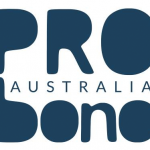Why Fundraising Laws Need Urgent Reform

30 August 2017 at 1:39 pm
Australia’s outdated fundraising laws can be addressed by “tweaking” the Australian Consumer Law regulations, writes lawyer Andrew Lind.
Many of us who work in the charity and not-for-profit sector will no doubt agree – Australian fundraising laws seem outdated and difficult to comply with. To tackle the issue, Justice Connect is spearheading a campaign to #fixfundraising in Australia.
The campaign, in a nutshell, argues that the Australian Consumer Law (“ACL”) (with minor amendment) is sufficient to regulate all fundraising activities in Australia. The legislative changes would allow all state and territory fundraising laws to be repealed.
Why are fundraising laws difficult to comply with?
Each state and territory in Australia (except for the Northern Territory) has its own fundraising legislation and each statute is individually nuanced – the compliance requirements vary from jurisdiction to jurisdiction.
Some states, for example, require charities or not for profits who want to fundraise to publish an ad in the local newspaper to allow others to object; other states require you to get a licence from the minister in that state. With varying approval time frames by state, it’s a real challenge to stay compliant and juggle varying responsibilities.
Cross border fundraising means that charities and NFPs have to comply with fundraising laws in more than one state, resulting in confusion as well as additional administration costs.
Thus, instead of focusing energy on raising money for charitable causes, which is the main object of the sector; NFPs and charities waste valuable time and money on compliance.
The Deloitte Access Economics: Final Report estimated that the forgone cost of compliance is up to $15.1 million a year, money which should be spent on providing charitable services.
How the ACL solution will help
The ACL solution will significantly remove red tape. Instead of having to contemplate the laws and regulations of up to seven different jurisdictions, with the ACL, charities and NFPs will only have to comply with one law, whether fundraising in one jurisdiction or numerous.
With one national law, the fundraising laws in various state and territories can be repealed. This move would reduce compliance confusion as well as costs.
Are fundraising laws outdated?
Fundraising laws in Australia appear to be stuck in a bygone era of regulating volunteer door-knockers with identification badges (and collection boxes on poles).
On the whole, each jurisdiction’s legislation is drafted narrowly and, as such, there has been little room to extend the laws to address modern fundraising activities such as crowd funding and online campaigns. As a result, charities and NFPs are uncertain as to which activities the current laws apply to.
There are two options to resolve this problem:
- Endure the process of updating every jurisdictions’ fundraising laws (which would require each jurisdiction’s parliament to pass a bill); or
- Tweak the Australian Consumer Law so that all of the provisions regulating misconduct when engaging in trade or commerce apply to charities and NFPs when fundraising.
What changes are required to the Australian Consumer Law?
While Consumer Affairs Australia and New Zealand noted in the Australian Consumer Law – Final Report that the ACL applies to most fundraising activities, in order to regulate all fundraising activity it would be necessary to either broaden the “in trade and commerce” threshold to expressly consider “fundraising activities” or to insert a new section into the ACL headed “false or misleading representations during a fundraising activity”.
One option proposed is to add a legislative note which contemplates that “many activities of not for profits, including fundraising, conducted by or on behalf of not-for-profit groups or organisations are considered to be a business or professional activity (whether or not carried on for a profit).”
However, why not go one step further to include all fundraising activity? This then clearly opens the way for states and territories to fundraisers to repeal their fundraising legislation.
These changes would provide a simple way to shift the regulation of fundraising to the ACL and away from outdated and conflicting state and territory laws.
The ACL at a state and territory level is already administered by the regulatory offices who currently administer the fundraising laws of that state or territory and accordingly is likely to result in the same or less financial impost on state regulators.
About the authors: Andrew Lind is a Director with law firm Corney & Lind. He has served on many not-for-profit and charity boards and on church leadership teams. He currently serves on policy and law reform committees of the Law Council of Australia and the Queensland Law Society.
Co-author Lornagh Howarth is currently pursuing a post-graduate degree in Law (Juris Doctor) at Bond University and works part-time as a law clerk.
For more information about state-by-state fundraising compliance, check out Fundraising Regulation 101. You can add your voice to the #fixfundraising campaign.








